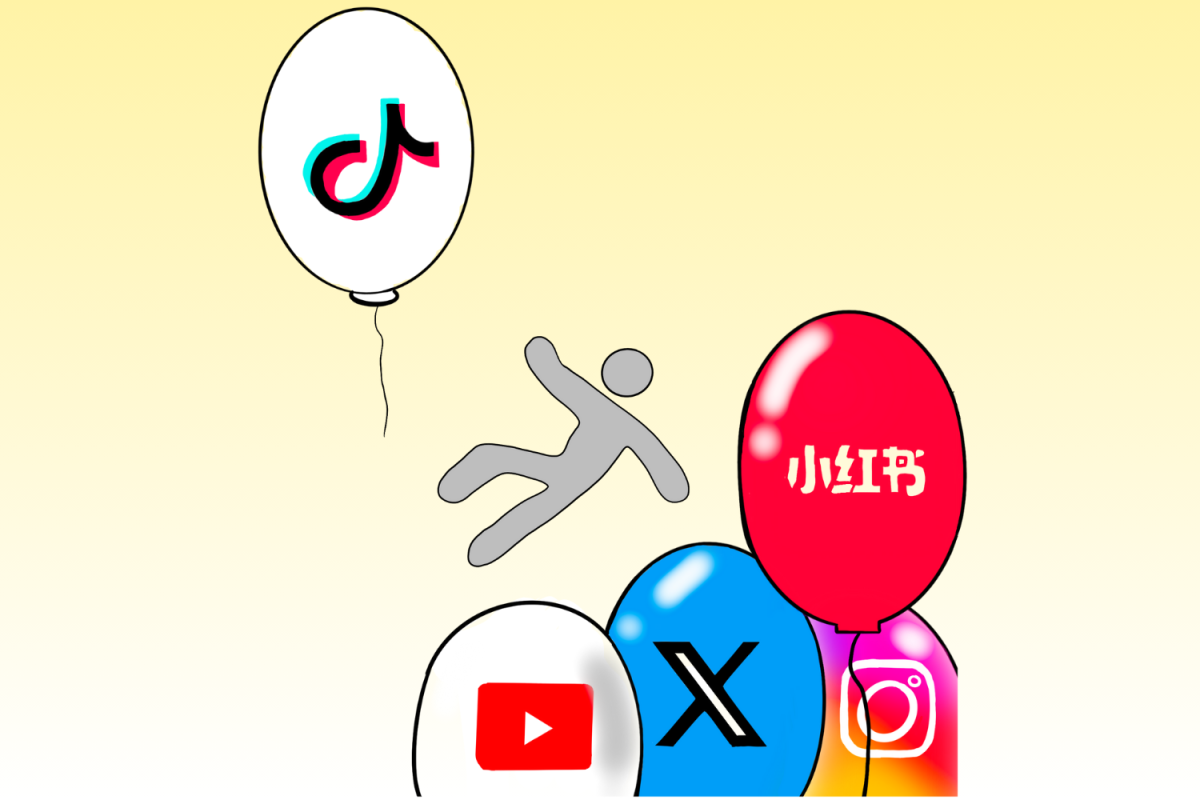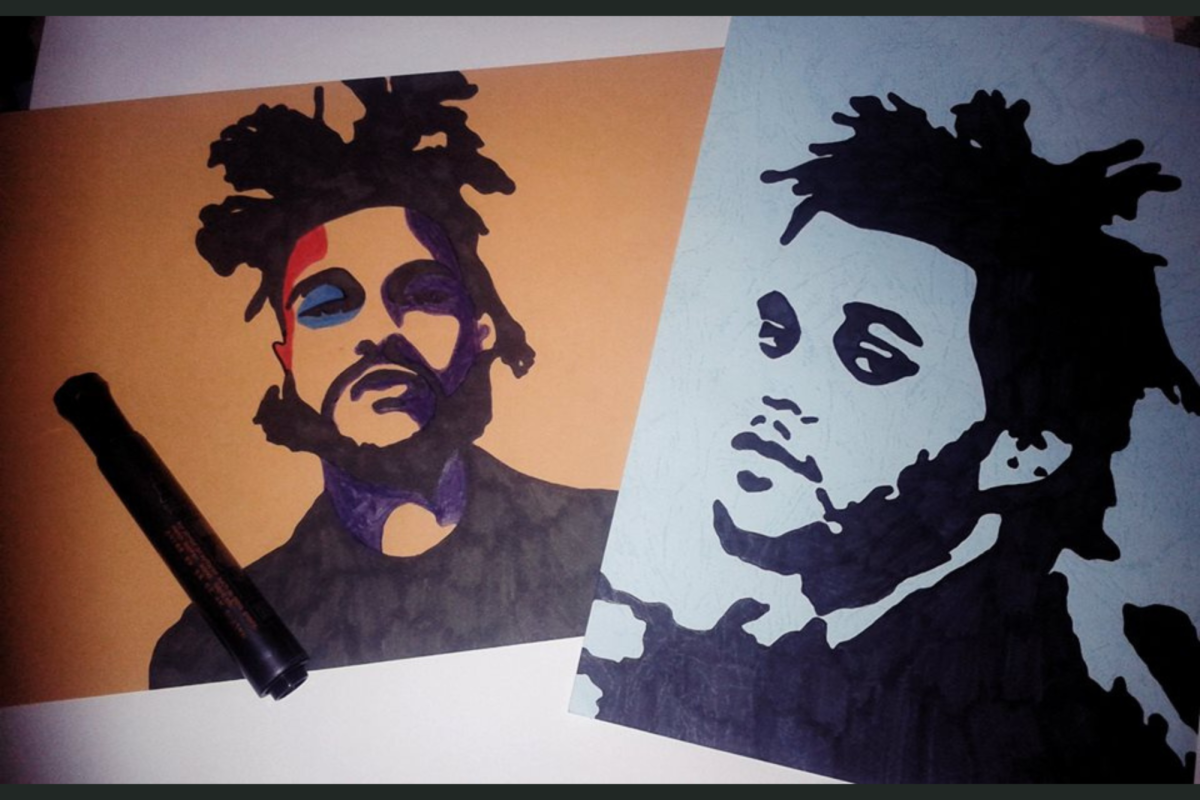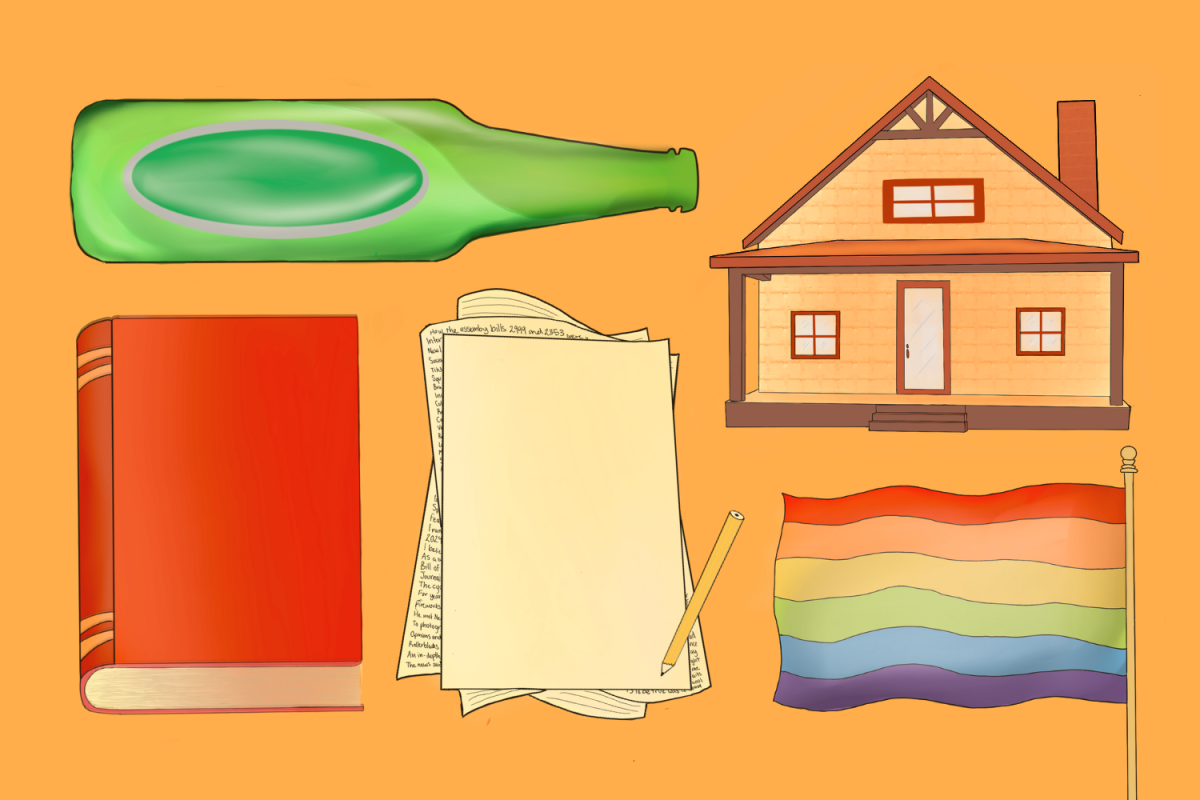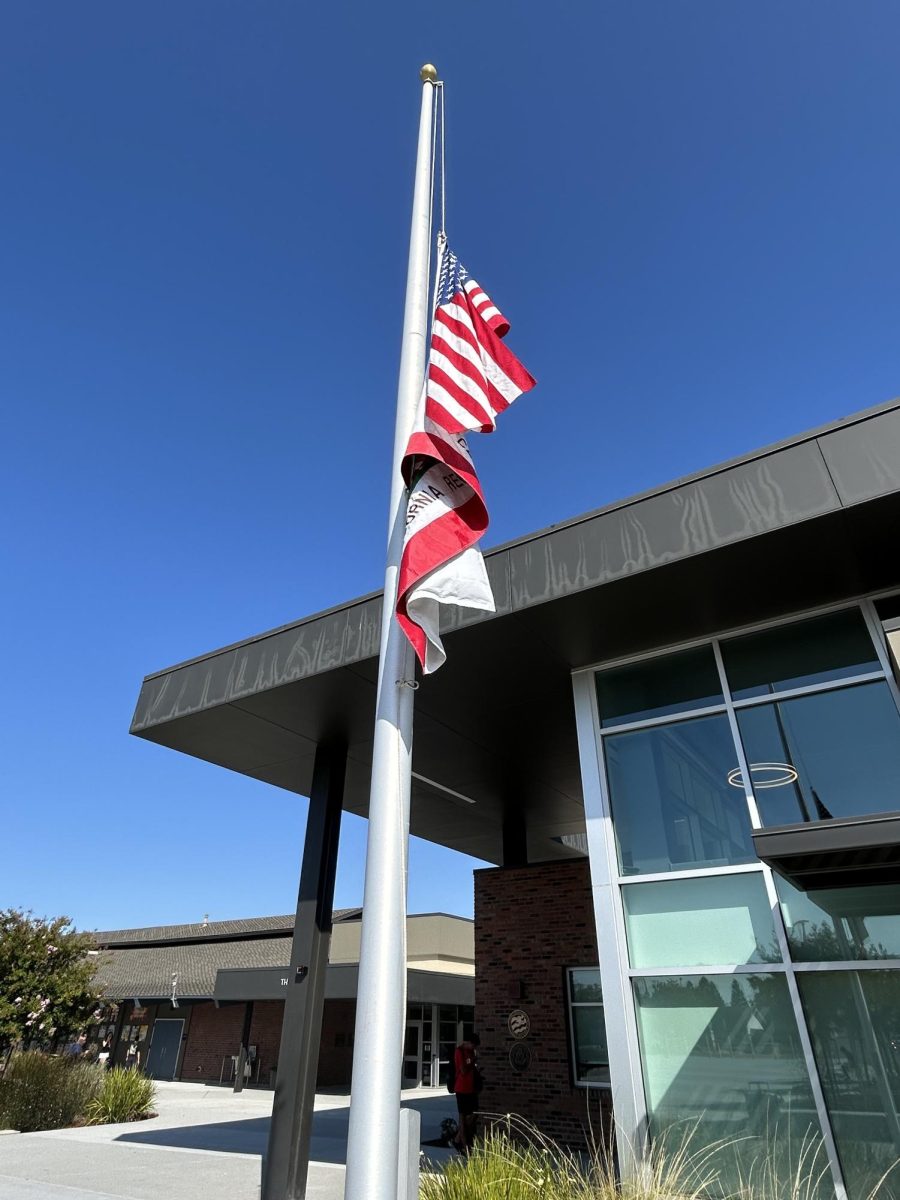TikTok is a platform famous for its viral trends and addicting algorithm. Over the past months, TikTok has faced impending bans, which would impact millions of Americans if put into effect. Ultimately, banning TikTok would be ineffective and potentially harmful, as it would improve neither national security nor mental health concerns caused by social media.
On Jan. 19, users opened up the app to find the message: “Sorry, TikTok isn’t available right now.” Just 12 hours later, the ban was lifted; President Trump had extended the deadline for 75 days, although the Supreme Court itself had decided to uphold the TikTok ban.
TikTok was first founded by the Beijing-based company ByteDance as an alternative to their popular app Douyin. It gained traction in 2018 when it became the most downloaded app of the year, but garnered controversy concerning its Chinese ownership. Matters of national privacy between the United States and China were especially inflamed by ByteDance employees improperly accessing user data of American journalists. TikTok saw its first pushback in 2020 when Trump cited the app as a national security threat and signed an executive order to force its sale, later reversed by both the court and the Biden administration. It would be four more years until former President Joe Biden signed a bipartisan bill: ByteDance had to sell the app to an approved buyer by Jan. 19 or it would face a ban in the U.S.
Though user data privacy is a real concern, the TikTok ban has partially proved counterproductive to its initial purpose. TikTok “refugees” have flooded RedNote, a Chinese app with far more censorship and direct government regulation than TikTok. TikTok is also only one of many tech giants, including Instagram and Facebook, that collects an extensive amount of user data. In addition to privacy concerns, many argue against the harmful effects of TikTok; its scrolling system encourages endless user engagement, while also harboring toxicity. It can expose young children to insensitive or inappropriate content. Yet banning TikTok would have little effect on the regulation of similar content on other social media platforms.
“If TikTok was banned, people would just find alternatives,” freshman Katelyn Wang said. “I saw a lot of people trying to find apps that could replace it.”
Unless improved regulation of social media platforms is implemented, such as advanced filtering of sensitive content of younger audiences, banning TikTok would not significantly improve online spaces. Responsibility from the students themselves, as well as responsibility from adults to help regulate youth use across all platforms, is what could reduce social media use in the end.
“Social media addiction is a serious issue, but I don’t think that cutting out a singular example of social media is going to solve it,” social studies teacher Jeffrey Bale said. “It needs to be much broader if you actually want to have an impact. Otherwise, it’s just like getting television and saying, ‘You’re not allowed one of your channels.’ You still have a bunch of channels.”
The ban of an entire social media platform also brings up concerns of a First Amendment violation, which can set up a worrying precedent for the future. The constitutionality of a ban is debated — the Supreme Court has asserted that TikTok belonged to a Chinese company, and therefore was not subject to the First Amendment protection of free speech. Despite this, millions of American users express their voices on the platform.
There is no saying what will ultimately happen to TikTok since the viability of the Trump administration scrapping the impending ban is uncertain. If the ban is realized, however, millions of users will gain very little and lose a valuable platform of speech.





































































